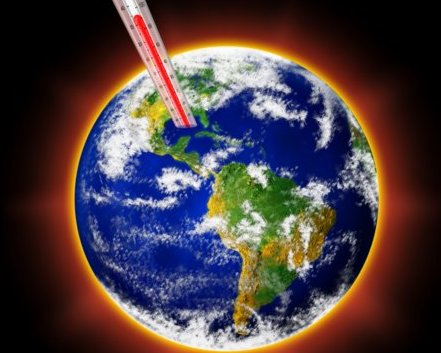
The sharp drop in corn yield associated with global warming could lead to a world shortage of food after a decade, and cause food crisis in Africa by 2030, say British climatologists in an article published in the journal Nature Climate Change.
"Increasing temperatures, more frequent droughts and heat waves significantly affect how you will behave in the corn growing on the fields in Africa. We tracked how the temperature of the air and soil affects the duration of the growth period of corn. It turned out that the increase in temperature leads to a reduction of this period, and accordingly, the decrease in the accumulated biomass," said Andy Challinor (Andy Sterman) from the University of Leeds (UK).
Challinor, and his colleagues revealed the very negative consequences that has for the climate change to ensure the Land and its fastest growing continent food. They followed the growth of average annual temperature and other associated with global warming things affect the duration of the vegetative period in cereals.
As cereal scientists chose the corn – one of the key agricultural crops of the world. It is especially popular in the developing countries of Africa, where "cassava" as it is called by locals, is the main herb in almost all countries below the Sahara.
Group Challinor checked how corn will respond to climate change. To do this, they evaluated how to change its yield and timing of fruiting by using they created climate models that took into account the impact of droughts, lack of water, excess heat, and the other four factors on life cereal.
As shown by these calculations, in the coming years, Africa and the entire Earth as a whole can expect a critical situation with access to corn – in 2018, the yield of cassava in some parts of the dark continent will fall sharply, and by 2030, modern varieties of corn will not be able to grow normally in the vast majority of African countries.
An additional problem is that the breeding of new varieties of agriculture – employment is extremely slow. On average, a new variety of corn thrown by breeders and developed by farmers for 20-30 years, whereas climate change in Africa is moving at a much faster pace.
Therefore, as scientists warn, if not to start developing new maize varieties that are adapted for life in "a new climate order," now the Earth waits for the food crisis in the next 30-40 years. The situation is even more complicated by the fact that breeders will have to be proactive, anticipating temperatures that will be waiting for us in the future, and the use of expensive greenhouses with climate control for their emulation.
As the scientists, the cessation of greenhouse gas emissions will not stop this process, and will only slow him down, postponing the moment of sharp reduction of yields with 2030's 2050-th year. For this reason, mankind still should prepare for the fact that to provide the entire planet with food will need an extraordinary breeding methods.
Translated by service "Yandex.Translation"










